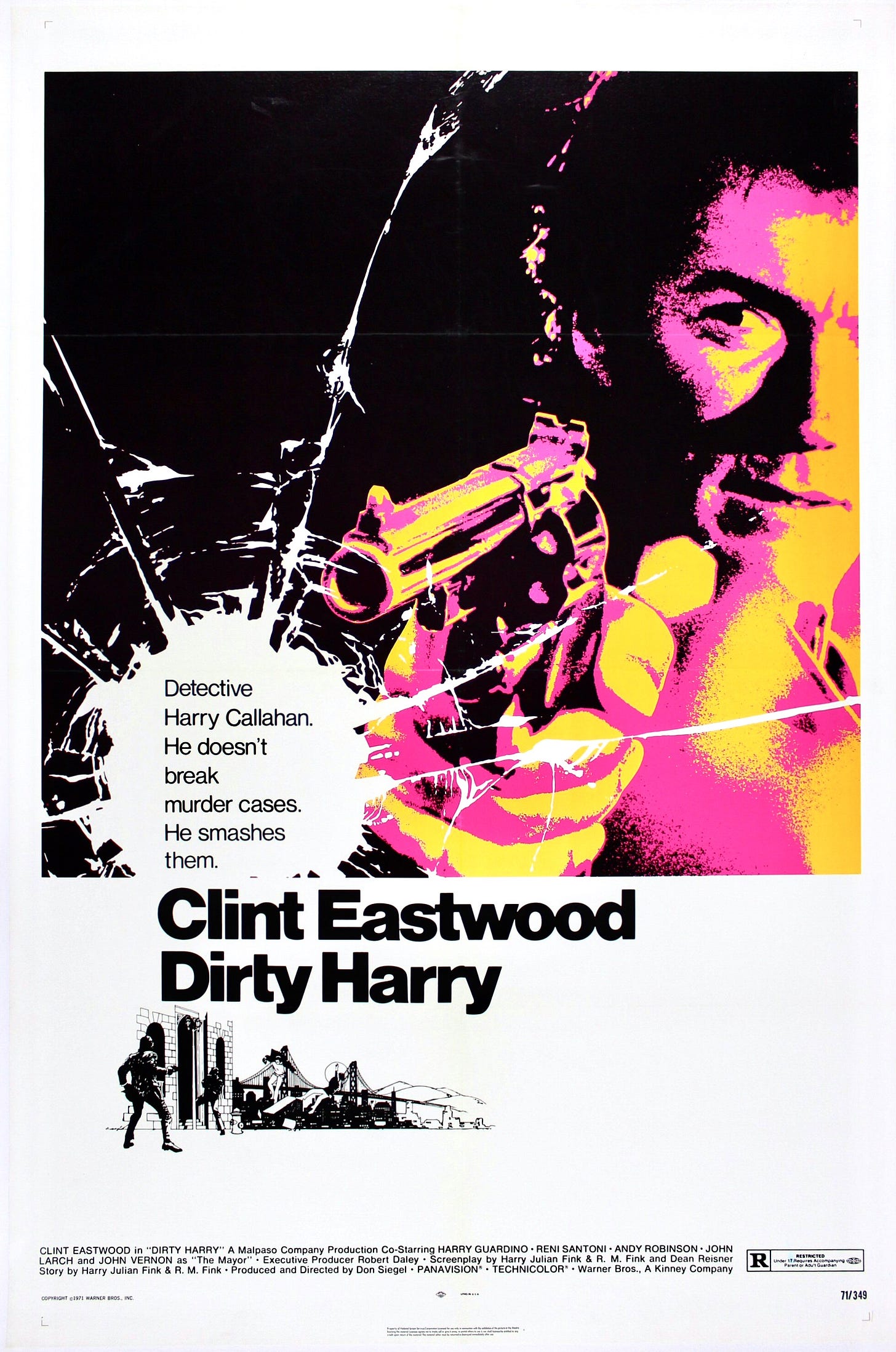Dirty Harry, Vigilantism, and the Rise of Gun Culture in the United States
Films in the 1970s seem by comparison today to be tougher, grittier, dirtier. The era also saw a focus on cops going against the system to enforce their own moral code (Dirty Harry, Serpico) or men out for justice (Death Wish). And as our guest this week discusses, the decade serves a sort of bridge from the cowboy-centric 1950s and 1960s to the action films of the 1980s. Dirty Harry, as we discover, may be the grandaddy of all anti-heroes in modern movies.
Our guest on the pod this week is Drew McKevitt, who is the author of an upcoming book from the University of North Carolina Press called Gun Country: Gun Capitalism, Culture, and Control in Cold War America. Drew is an important voice in understanding how people internalize the importance of firearms and what has led to the explosion of gun sales and gun violence in the United States. He’s also written a really cool book on pop culture and capitalism in the 1980s called Consuming Japan: Popular Culture and the Globalizing of 1980s America.
We talk about the politics of the 1970s, the NRA, Dirty Harry’s influence on film over the past 50s years all the way up to the John Wick series, and ultimately how fantasies like the Dirty Harry movies have driven the expansion of gun sales and gun ownership. We had tried to schedule this pod for several weeks, ultimately settling on a date turned out to be the day following the tragedy in Nashville. This is an episode that is at times really funny and at others very poignant. It’s by the far my favorite we’ve released yet. I hope you like it.
Having a bit of trouble with the coding tonight, so click for Apple Podcasts
And for Buzzsprout
Hey, one last thing. Thank you to everyone who has asked how you can support Historians At The Movies and this community we are building. I’ve created a Patreon account to help pay for production costs and eventual expansion so if you’d like to chip in, you can do so here. Thanks always for being part of this.




